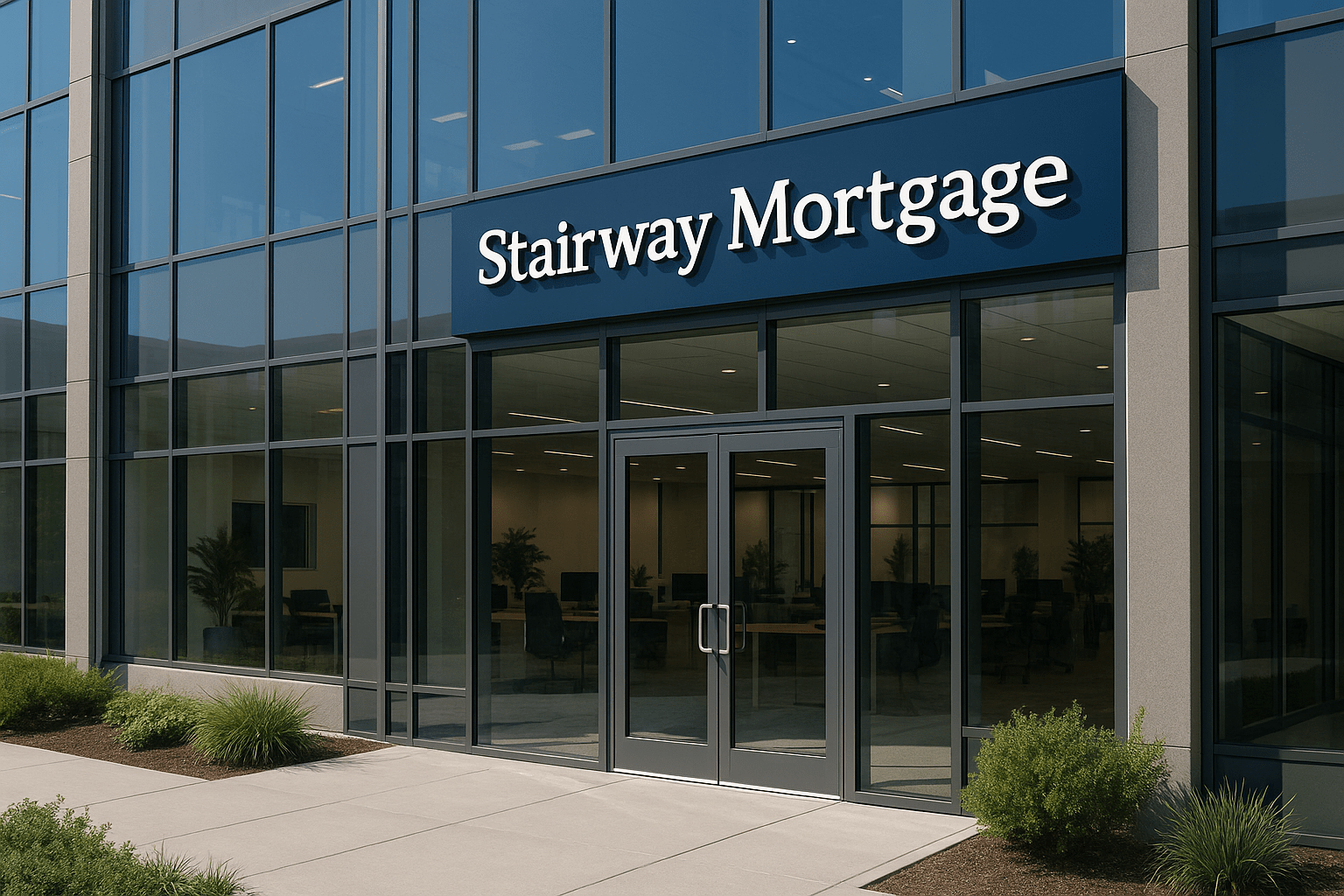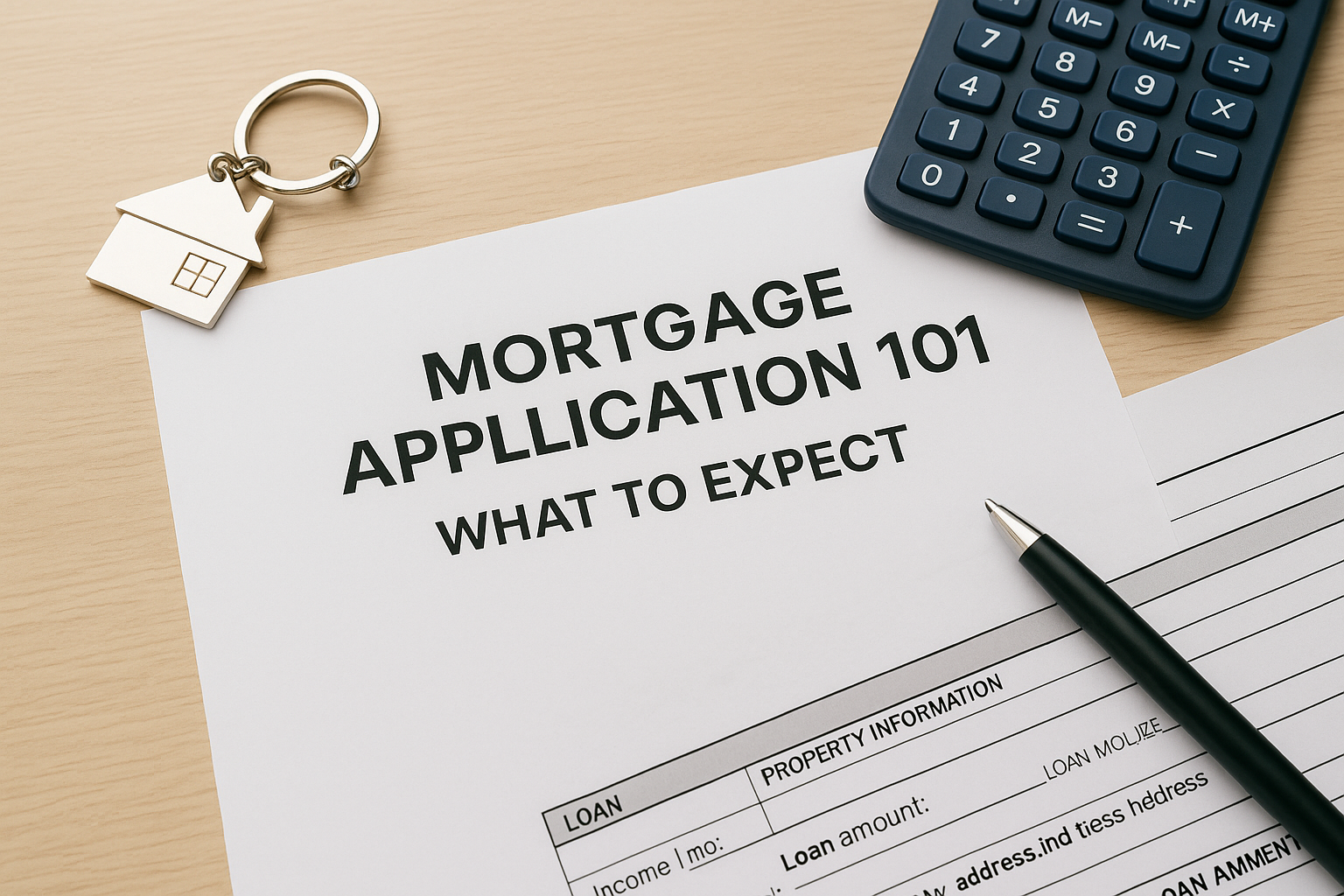
Selling Home: Timing, Preparation, and Maximizing Your Equity
Selling Home: Timing, Preparation, and Maximizing Your Equity

Selling Home Strategies: Best Way to Sell Your House
Selling your home is one of the biggest financial decisions you’ll make—and getting it right can mean the difference between leaving substantial money on the table or maximizing the equity you’ve built over years of ownership. Whether you’re upgrading, downsizing, relocating for work, or cashing out your investment, understanding market timing, preparation strategies, and how to navigate the sale process helps you walk away with maximum proceeds.
In this guide, you’ll discover:
- Market timing strategies that help you sell at optimal moments
- Preparation essentials that boost your sale price (based on real estate market data from Census Bureau)
- How to price your home strategically for quick sale at top dollar
- Cost basis and capital gains considerations (per IRS capital gains rules)
- Commission structure and negotiation tactics
- Pre-sale improvements worth making (and which to skip)
Questions about selling strategy or buying your next home? Schedule a call to discuss your timeline and goals.
What Does “Selling Home” Really Mean for Your Wealth?
How much equity have you actually built? For most homeowners, their residence represents their single largest asset and biggest component of net wealth. Selling isn’t just a transaction—it’s the culmination of years of mortgage payments, market appreciation, and home improvements that converted into tangible equity.
When you sell, you’re not just transferring a property. You’re:
- Unlocking accumulated wealth stored in bricks and mortar
- Converting illiquid equity into liquid capital
- Positioning yourself for your next financial move
- Potentially realizing substantial tax-advantaged gains
- Creating options for upgrading, investing, or simplifying your life
What’s your home’s real value? The difference between your current market value and remaining mortgage balance represents your accessible equity—the pool of wealth you’ve built that becomes available at closing.
Use the home equity calculator to estimate your available equity based on current market conditions.

Why Market Timing Matters for Homeowners
When should you list your home? Timing affects both how quickly your home sells and the final sale price you achieve. Strategic sellers understand that real estate markets move in cycles—and launching your listing at the right moment can mean substantial additional proceeds.
Seasonal Market Patterns
Does spring really sell better? Market data consistently shows seasonal patterns:
- Spring (March-May): Peak selling season with maximum buyer activity, families wanting to move before school year, best time for curb appeal
- Summer (June-August): Still strong but slowing toward end, vacation conflicts reduce showings, good for family buyers
- Fall (September-November): Serious buyers remain, less competition from other listings, holiday season can slow momentum
- Winter (December-February): Lowest inventory creates less competition, motivated buyers only, properties may show less favorably
Should you wait for spring? Not always. Sometimes selling in an “off” season means less competition from other sellers, and the buyers who are looking in winter tend to be more serious and motivated.
Local Market Conditions
How do you read your specific market? Work with a knowledgeable local agent who tracks:
- Months of inventory (how quickly homes are selling)
- Days on market averages
- Sale price to list price ratios
- New listing trends
- Interest rate impact on buyer demand
Is it a seller’s market or buyer’s market? This fundamental distinction drives your strategy. In seller’s markets with low inventory and high demand, you have pricing power and negotiating leverage. In buyer’s markets with high inventory, preparation and competitive pricing become critical.
How to Prepare Your Home for Maximum Sale Price
What improvements actually pay off? Not all pre-sale investments deliver positive returns. Focus your energy and budget on high-impact preparations that buyers notice and value.
High-ROI Improvements (Typically Return More Than Cost)
What should you definitely do?
- Fresh paint (neutral colors throughout)
- Deep cleaning (especially kitchen and bathrooms)
- Curb appeal (landscaping, front door, exterior cleaning)
- Minor kitchen updates (new hardware, fixtures, lighting)
- Bathroom refresh (re-caulk, new fixtures, vanity updates)
- Flooring repairs (fix damaged areas, professional cleaning)
- Lighting upgrades (brighter spaces photograph better, feel more spacious)
- Decluttering and staging (helps buyers envision themselves living there)
Low-ROI Improvements (Often Don’t Recoup Costs)
What should you skip?
- Major renovations (full kitchen or bath remodels right before selling)
- Luxury upgrades (high-end appliances beyond neighborhood standard)
- Pool installation (not every buyer wants maintenance responsibility)
- Elaborate landscaping (beyond basic curb appeal)
- Personalized features (highly specific to your taste)
Should you over-improve for your neighborhood? Generally no. Homes sell best when priced competitively within their market segment. Making your home the most expensive on the block often means longer days on market.
If you’re considering keeping your home and converting it to a rental property instead, explore DSCR loans that qualify based on the property’s rental income rather than your personal income.

Pricing Strategy: Finding the Sweet Spot
How do you price your home to sell quickly at top dollar? This is the art and science of successful home selling. Price too high and you sit on the market, eventually selling for less than if you’d priced correctly initially. Price too low and you leave money on the table.
The Comparative Market Analysis (CMA)
What homes really matter for pricing? Your agent should analyze:
- Recently sold homes (past several months, similar features)
- Active listings (your current competition)
- Pending sales (homes under contract, indicating current buyer appetite)
- Expired listings (homes that didn’t sell, showing what doesn’t work)
How similar should comparables be? The most relevant comparisons share:
- Similar square footage
- Same number of bedrooms/bathrooms
- Comparable condition and updates
- Similar lot size and features
- Same school district or immediate neighborhood
Pricing Psychology
Should you price just below a threshold? Research shows buyers search in price ranges—a home priced at a moderate amount versus just above that threshold gets significantly more views. Small pricing adjustments can dramatically affect your buyer pool.
The First Two Weeks Are Critical
Why does initial pricing matter so much? The first days on market generate maximum interest—buyers and their agents watch for new listings. If you price too high initially:
- You miss the wave of motivated buyers
- Your home becomes “stale” inventory
- Later price reductions stigmatize the property
- You end up selling for less than if you’d priced correctly from day one
Use the bridge loan calculator if you need to purchase your next home before your current one sells.
Understanding Cost Basis and Capital Gains
How much tax will you owe on the sale? For many homeowners, the answer is zero—thanks to the primary residence capital gains exclusion. But understanding the rules helps you maximize your benefit.
The Capital Gains Exclusion
What’s excluded from taxation? Under current IRS rules:
- Single filers: Exclude a substantial amount of gain
- Married filing jointly: Exclude double that amount of gain
- Must have lived in the home for at least two of the past five years
- Can use this exclusion repeatedly (typically every two years)
Example scenario: You purchased your home years ago at a moderate price. Today it’s worth significantly more. Your gain substantially exceeds the exclusion threshold, but as a married couple, you owe zero capital gains tax.
Calculating Your Cost Basis
What reduces your taxable gain? Your cost basis includes:
- Original purchase price
- Closing costs paid when you bought
- Capital improvements made over the years (not repairs—improvements that add value or extend life)
- Costs to sell (commission, closing costs, transfer taxes)
What counts as a capital improvement?
- Room additions or finishing basements
- New roof, HVAC system, or windows
- Kitchen or bathroom renovations
- Deck, patio, or landscaping improvements
- Swimming pool installation
What doesn’t count?
- Regular maintenance and repairs
- Painting (unless part of larger renovation)
- Fixing broken items
- Routine landscaping
Why keep good records? Document all improvements with receipts and photos. These increase your cost basis and reduce potential capital gains exposure if your profit exceeds the exclusion limit.
For guidance on real estate tax implications, consult IRS Publication 523 on home sale tax rules.

Commission Structure and Closing Cost Expectations
What will selling actually cost you? Understanding the full expense picture helps you calculate your net proceeds and plan accordingly.
Real Estate Commission
How much goes to agents? Traditional commission structures typically total a meaningful percentage of the sale price, split between the listing agent (representing you) and buyer’s agent. Some key points:
- Commission is negotiable (though challenging in competitive markets)
- Discount brokers offer lower rates but often provide reduced services
- Flat-fee services list your home for a set price regardless of sale price
- For-sale-by-owner (FSBO) saves commission but adds complexity
Is commission worth it? Professional agents typically deliver:
- Higher sale prices that more than offset commission
- Market expertise and pricing guidance
- Marketing reach and buyer network access
- Negotiation skills protecting your interests
- Smooth transaction management
Additional Closing Costs
What else will you pay at closing?
- Title insurance and escrow fees
- Transfer taxes (vary significantly by location)
- Recording fees
- Prorated property taxes
- HOA fees (if applicable and prorated)
- Home warranty (sometimes seller-paid)
- Repairs negotiated after inspection
- Outstanding liens or judgments
Budget conservatively: Expect costs beyond commission to add another several percentage points to your selling expenses.
Pre-Sale Improvements: What’s Worth Doing?
Should you renovate before selling or sell as-is? The answer depends on your home’s condition, local market, and your timeline.
When Pre-Sale Improvements Make Sense
Invest when:
- Your home needs obvious repairs that will trigger buyer concerns
- Comparable homes in your price range are updated
- The market is balanced or favors buyers (need to stand out)
- You have time and budget for smart, targeted improvements
- Small investments will yield meaningful price increases
Focus on:
- Fixing deferred maintenance (leaky faucets, broken appliances, damaged flooring)
- Refreshing dated finishes with neutral updates
- Enhancing curb appeal and first impressions
- Making spaces feel clean, bright, and spacious
If you’re considering home improvements but want to stay in your home, explore the FHA 203k loan for renovation financing or the HELOC for flexible equity access.
When to Sell As-Is
Skip improvements when:
- You’re in a hot seller’s market where homes sell quickly regardless
- Your home’s location and bones are the main value drivers
- Improvements would need to be extensive to be worthwhile
- You don’t have time or capital for renovations
- Investors or renovation-minded buyers are active in your market
The “as-is” approach acknowledges that your home needs work and prices accordingly, attracting buyers who want to customize to their preferences or investors looking for value-add opportunities.

Disclosure Requirements and Negotiation Tactics
What must you tell buyers? Disclosure requirements vary by state but generally require revealing:
Mandatory Disclosures
What are you legally required to disclose?
- Known material defects affecting the property
- Past repairs or renovations (especially unpermitted work)
- Environmental hazards (lead paint, asbestos, radon)
- Insurance claims filed on the property
- Neighborhood nuisances (noise, odors, planned developments)
- HOA rules, fees, and special assessments
- Property boundaries and easement issues
Why full disclosure protects you: Failing to disclose known issues can lead to lawsuits after closing. Better to be transparent upfront and let buyers make informed decisions than face legal liability later.
Negotiation Strategies
How do you handle inspection negotiations?
Buyer requests repairs after inspection—your options:
- Make all requested repairs (keeps deal moving, ensures quality)
- Offer credit at closing (faster, buyers choose their contractors)
- Negotiate a middle ground (address major items, decline minor ones)
- Hold firm (if market supports it and requests seem unreasonable)
- Walk away (if buyer demands become excessive)
What’s standard versus unreasonable? Expect buyers to request repairs for:
- Safety issues (electrical, structural)
- Major system problems (roof leaks, HVAC failures)
- Code violations or missing permits
- Significant defects not previously disclosed
What’s typically not standard:
- Cosmetic preferences
- Minor maintenance items
- Upgrades beyond current condition
- Issues clearly visible during initial viewing
How Stairway Mortgage Helps Home Sellers
While we’re primarily known for helping buyers secure financing, we also support homeowners through the selling process—especially when your next move involves purchasing another property.
Bridge Loans for Overlapping Ownership
What if you need to buy before you sell? Bridge loans provide short-term financing that lets you:
- Purchase your next home without a sale contingency (stronger offer)
- Move on your timeline without rushed selling decisions
- Avoid temporary housing or double moves
- Prepare your current home properly for sale after you’ve moved out
How does it work? The bridge loan provides funds for your down payment on the new home, secured by equity in your current home. Once your original home sells, you pay off the bridge loan and settle into your traditional mortgage on the new property.
Planning Your Next Purchase
Already thinking about what’s next? We help you:
- Understand how your home sale proceeds affect your buying power
- Pre-qualify for your next mortgage based on projected net proceeds
- Time your purchase and sale for seamless transition
- Explore programs like FHA loans, VA loans, or conventional financing for your next home
- Consider jumbo loans if you’re upgrading significantly
1031 Exchange Considerations
Are you selling a rental property? If you’re selling investment real estate (not your primary residence), explore 1031 exchange strategies to defer capital gains taxes by rolling proceeds into another investment property.
Ready to discuss your selling timeline and next home financing? Get pre-approved to position yourself as a strong buyer when you find your next property.
Ready to Maximize Your Home Sale?
Selling your home successfully requires strategic timing, thoughtful preparation, smart pricing, and skilled negotiation. Whether you’re:
- Upgrading to accommodate a growing family
- Downsizing after children leave home
- Relocating for career opportunities
- Cashing out investment equity
- Simply ready for a change
Your next steps:
- Assess market timing – Work with a local agent to understand current conditions
- Calculate your net proceeds – Use our home equity calculator to estimate available funds
- Plan strategic improvements – Focus budget on high-ROI preparations
- Get pre-approved for your next home – Start the process before you list
- Explore bridge financing if needed – Schedule a call to discuss overlapping ownership
You’ve built substantial equity over the years. Let’s help you maximize it and position you perfectly for what comes next.

Frequently Asked Questions
What’s the best month to sell a house?
Historically, spring months (April and May) generate the highest buyer activity and achieve the best prices. Families want to move before the school year starts, weather is ideal for showings, and homes show beautifully with blooming landscapes. However, the “best” month for you depends on your local market conditions, personal timeline, and whether reduced competition in off-seasons might work in your favor. Strong markets can support successful sales year-round.
Should I sell my house or rent it out?
This decision depends on your financial goals, market conditions, and lifestyle plans. Sell if: you need the equity for your next purchase, don’t want landlord responsibilities, or believe your local market has peaked. Keep as rental if: the property cash flows positively, you want long-term wealth building through real estate, and you qualify for your next home without using the equity. Consider exploring DSCR loans that qualify based on the rental property’s income rather than your personal finances. Use the rental property calculator to analyze whether the numbers make sense.
How do I sell my house fast without losing money?
Selling quickly while maximizing price requires strategic approach: Price competitively from day one (not high hoping to negotiate down), prepare your home thoroughly (first impressions matter enormously), maximize exposure (professional photos, strong online presence, open houses), be flexible with showings (accommodate buyer schedules even when inconvenient), and respond promptly to offers (delays can kill buyer enthusiasm). Working with an experienced agent who knows your market is worth the commission through their pricing expertise, marketing reach, and negotiation skills.
What happens if I sell my house before paying off the mortgage?
This is the normal scenario—most sellers have remaining mortgage balances. At closing, your lender is paid off from the sale proceeds before you receive your net check. The process: buyer brings purchase funds, title company pays off your existing mortgage, closing costs and commissions are deducted, and you receive the remaining equity. You should never have to bring money to closing unless your home sells for less than what you owe (rare in normal markets). The key question is whether you have sufficient equity to cover your mortgage payoff, selling costs, and still have proceeds for your next move.
Do I have to pay capital gains tax when I sell my primary residence?
Most homeowners owe zero capital gains tax thanks to the primary residence exclusion. You can exclude substantial gains (significant amounts for singles, double for married couples) if you’ve lived in the home at least two of the past five years. Example: Purchased home at moderate price, now selling at significant gain—your profit is well within exclusion limits, so you owe no federal capital gains tax. This exclusion can typically be used every two years. For detailed guidance, see IRS Publication 523 or consult a tax professional, especially if your gain exceeds the exclusion limits or you have a complex situation.
Also Helpful for Homeowners
- Bridge Loans – Financing to buy your next home before your current one sells
- Home Equity Access – Using HELOC for improvements before selling
- Investment Property Conversion – Keeping your home as a rental instead of selling
What’s Next in Your Journey?
- Purchasing Your Next Home – Pre-approval options for conventional, FHA, VA, and jumbo financing
- Tax-Deferred Exchanges – 1031 exchange calculator for investment property sellers
- Rental Property Analysis – Evaluate keeping your home as investment property
Explore Your Complete Options
- All Loan Programs – Find financing for your next home purchase
- Mortgage Calculators – Plan your next move strategically
- Success Stories – See how others navigated their transitions
- Get Pre-Approved – Position yourself as a strong buyer
- Schedule a Call – Discuss your selling and buying timeline
Need a Pre-Approval Letter—Fast?
Buying a home soon? Complete our short form and we’ll connect you with the best loan options for your target property and financial situation—fast.
- Only 2 minutes to complete
- Quick turnaround on pre-approval
- No credit score impact
Got a Few Questions First?
Let’s talk it through. Book a call and one of our friendly advisors will be in touch to guide you personally.
Schedule a CallNot Sure About Your Next Step?
Skip the guesswork. Take our quick Discovery Quiz to uncover your top financial priorities, so we can guide you toward the wealth-building strategies that fit your life.
- Takes just 5 minutes
- Tailored results based on your answers
- No credit check required
Related Posts
Subscribe to our newsletter
Get new posts and insights in your inbox.






